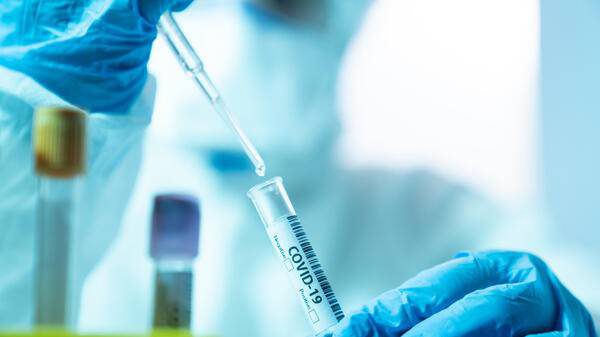GENEVA, 25 September 2020: Covid-19 testing for all passengers before departure should be introduced as an alternative to quarantine according to the International Air Transport Association.
IATA is calling on governments to develop and deploy rapid, accurate, affordable, easy-to-operate, scalable and systematic Covid-19 testing for all passengers.

IATA says it will work through the International Civil Aviation Organization (ICAO) and with health authorities to implement this solution quickly.
International travel is 92% down on 2019 levels. Over half a year has passed since global connectivity was destroyed as countries closed their borders to fight Covid-19. Some governments have cautiously re-opened borders since then, but there has been limited uptake because either quarantine measures make travel impractical or the frequent changes in Covid-19 measures make planning impossible.
“The key to restoring the freedom of mobility across borders is systematic Covid-19 testing of all travellers before departure. This will give governments the confidence to open their borders without complicated risk models that see constant changes in the rules imposed on travel. Testing all passengers will give people back their freedom to travel with confidence. And that will put millions of people back to work,” said IATA’s director general and CEO, Alexandre de Juniac.
IATA argues that the economic cost of the breakdown in global connectivity makes investing in a border-opening testing solution a priority for governments. Already lost revenues are expected to exceed USD400 billion and the industry was set to post a record net loss of over USD80 billion in 2020 under a more optimistic rebound scenario than has actually unfolded.
“Safety is aviation’s top priority. We are the safest form of transport because we work together as an industry with governments to implement global standards. With the economic cost associated with border closures rising daily and a second-wave of infections taking hold, the aviation industry must call on this expertise to unite with governments and medical testing providers to find a rapid, accurate, affordable, easy-to-operate, and scalable testing solution that will enable the world to safely re-connect and recover,” said de Juniac.
IATA’s public opinion research revealed strong support for Covid-19 testing in the travel process. Some 65% of travellers surveyed agreed that quarantine should not be required if a person tests negative for Covid-19.
Passengers’ support for testing is evident in the following survey results:
84% agreed that testing should be required of all travellers;
88% agreed that they are willing to undergo testing as part of the travel process.
In addition to opening borders, public opinion research also indicated that testing would help to rebuild passenger confidence in aviation. Survey respondents identified the implementation of Covid-19 screening measures for all passengers as effective in making them feel safe, second only to mask-wearing.
The availability of rapid Covid-19 testing is among the top three signals that travellers will look to for reassurance that travel is safe (other signals; the availability of a vaccine or a treatment for Covid-19).
Covid-19 testing before departure is the preferred option as it will create a “clean” environment throughout the travel process. Testing on arrival would dent passenger confidence with the potential for quarantine at destination in the event of a positive result.
IATA does not see Covid-19 testing becoming a permanent fixture in the air travel experience, but it will likely be needed into the medium-term for air travel to re-establish itself.
“Many see the development of a vaccine as the panacea for the pandemic. It will certainly be an important step, but even after an effective vaccine is globally recognized, ramping up production and distribution is likely to take many months. Testing will be a much-needed interim solution,” said de Juniac.








Definitely testing and masks are the only answer if we don’t want to sink the world’s economy. Also checking for temperature and fever will help, though not the laughable way they did it in Bangkok airport for example. Most people I know are not traveling because they don’t want to pay for flights and hotels upfront, with the risk of them being cancelled or shut down. Too many people have had to wait months for their reimbursement, and many people have not had their money back at all from hotels. This does not exactly inspire confidence.